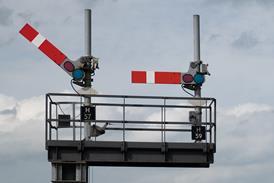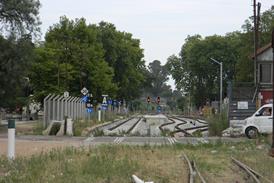EUROTUNNEL’S Chairman & Chief Executive Jacques Gounon survived by a large majority an attempt to replace him with fellow director and former Chief Executive Jean-Louis Raymond at the AGM on June 17. But it was a close thing.
It appears that Nicholas Miguet - the share tipster who held a large number of proxy votes for French shareholders - had decided on the previous evening to switch his support from Raymond to Gounon.
In essence, the disagreement between the two candidates stemmed from the tactics used for restructuring €8·9bn of debt. Gounon has told creditors they should simply write-off €5·6bn of this debt, allowing Eurotunnel to service the remainder - if and when its profitability improves. Raymond believes dilution of existing equity is an inevitable price to be paid.
Miguet was an arch opponent of dilution, presenting himself (like Gounon) as the shareholders’ champion. But during that week he appears to have accepted that dilution was a necessary evil to avoid ’substitution’, the right of creditors to seize the assets and run the Tunnel themselves.
As tension within the board rose during May and June, a flurry of statements emerged suggesting better times ahead. Tolls for passenger shuttles based on yield management were revealed, and the board that a year earlier had derided Eurotunnel’s plan to become a rail freight operator announced that its subsidiary Europorte 2 had been awarded a licence to operate open access freight in France. Then, on June 10, Raymond resigned as Chief Executive, blaming Gounon for undermining his position in relation to staff redundancy terms just agreed with the French unions.
As to the immediate future, further board changes seem likely in view of the clear split on tactics. Gounon is relying on the reluctance of US hedge funds in particular to get involved in managing an activity which generates a surplus on operations that is unlikely to change much whoever is on the board, claiming that substitution would achieve nothing for the creditors.
For the two governments, waiting until certain conditions are breached that allow the concession to be terminated might seem the obvious course. Not so. We understand there is real concern at government level that American creditors in particular could initiate prolonged and potentially costly actions in the US courts. A trawl through the Treaty of Canterbury, the Concession Agreement and other documents has revealed commitments which could be used to lever substantial compensation awards.
- On June 24 the European Commission approved an extension until November 2006 of the existing arrangements covering payment from the public purse of tolls for use of the Channel Tunnel by through freight trains. EWS said that the decision will enable it to ’begin active discussions on the appropriate and realistic level of charging by Eurotunnel for freight services to use the Channel Tunnel after November 2006’, when the Minimum Usage Charge ends.




















